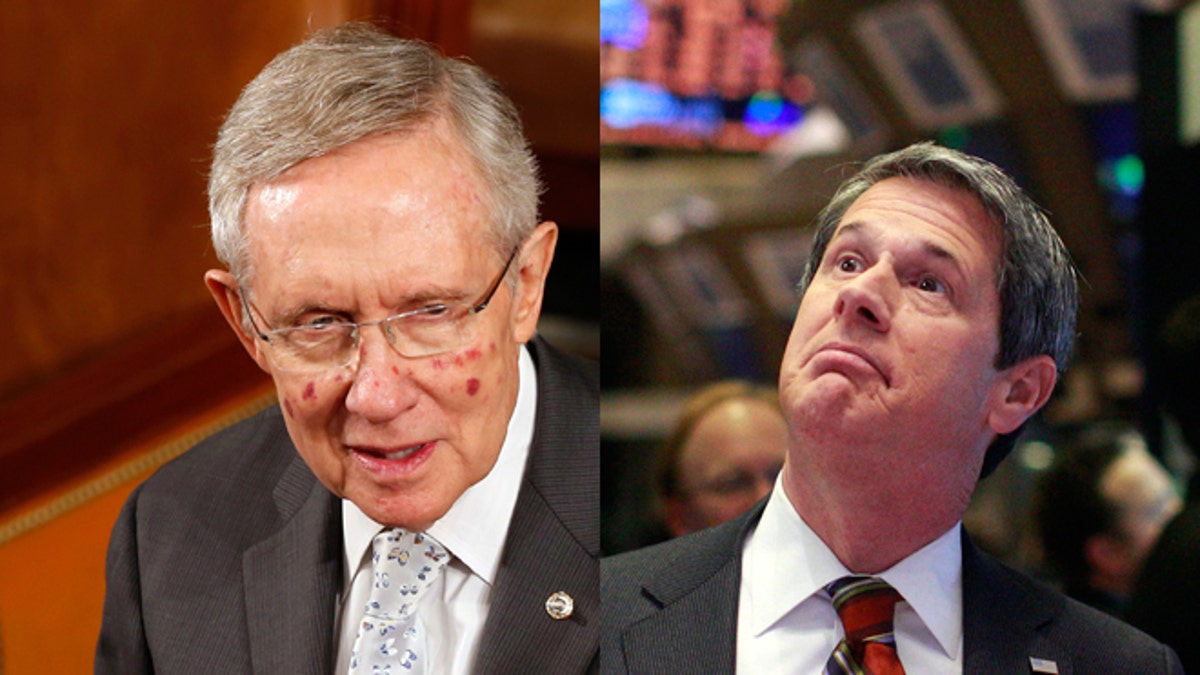
FILE: undated: Senate Majority Leader Harry Reid, D-Nevada, and Sen. David Vitter, R-La. (REUTERS)
Louisiana Republican Sen. David Vitter ripped Majority Leader Harry Reid for suggesting the damage from Hurricane Katrina was "nothing" compared with the damage from Superstorm Sandy.
Reid, D-Nev., made the comments last week when Congress was taking up a $9 billion disaster-relief bill for the East Coast, which is still reeling from Sandy.
“The people of New Orleans and that area, they were hurt, but nothing in comparison to what happened to the people in New York and New Jersey,” Reid said.
Vitter acknowledged that Katrina and Sandy, in late October, were “horribly destructive storms that caused real human misery,” but argued that Katrina “by any measure” was the worst natural disaster in U.S. history.
The hurricane hit the Gulf Coast region in 2005 and resulted in 1,833 deaths and more than $108 billion in damage.
“Sadly, Harry Reid has again revealed himself to be an idiot, this time gravely insulting Gulf Coast residents,” Vitter, the ranking Republican of the Senate’s Environment and Public Works Committee, said Monday.
Sandy, whose full force hit New Jersey and New York, caused at least 125 deaths and $62 billion in damage along the entire East Coast.
Reid apologized Monday, after Vitter's criticism.
"I simply misspoke," he said in a written statement. "I am proud to have been an advocate for disaster victims in the face of Republican foot-dragging, from Hurricane Katrina to Hurricane Sandy, from fires in the west to tornadoes in the Midwest. I have worked hard ... to ensure that the people of the Gulf Coast have the resources they need to fully recover. And I will continue to advocate on their behalf until the region is fully recovered."
The Democrat-controlled Senate passed a $60.4 billion Sandy package without debate in the last session. The House instead approved a smaller, $9.7 billion package Friday -- several days after the 112th Congress ended and following concerns among fiscal conservatives that the Senate package included non-essential spending.
House Speaker John Boehner delayed the vote amid last-second fiscal negotiations and has scheduled a Jan. 15 vote for the roughly $51 billion in remaining disaster-relief funds.




